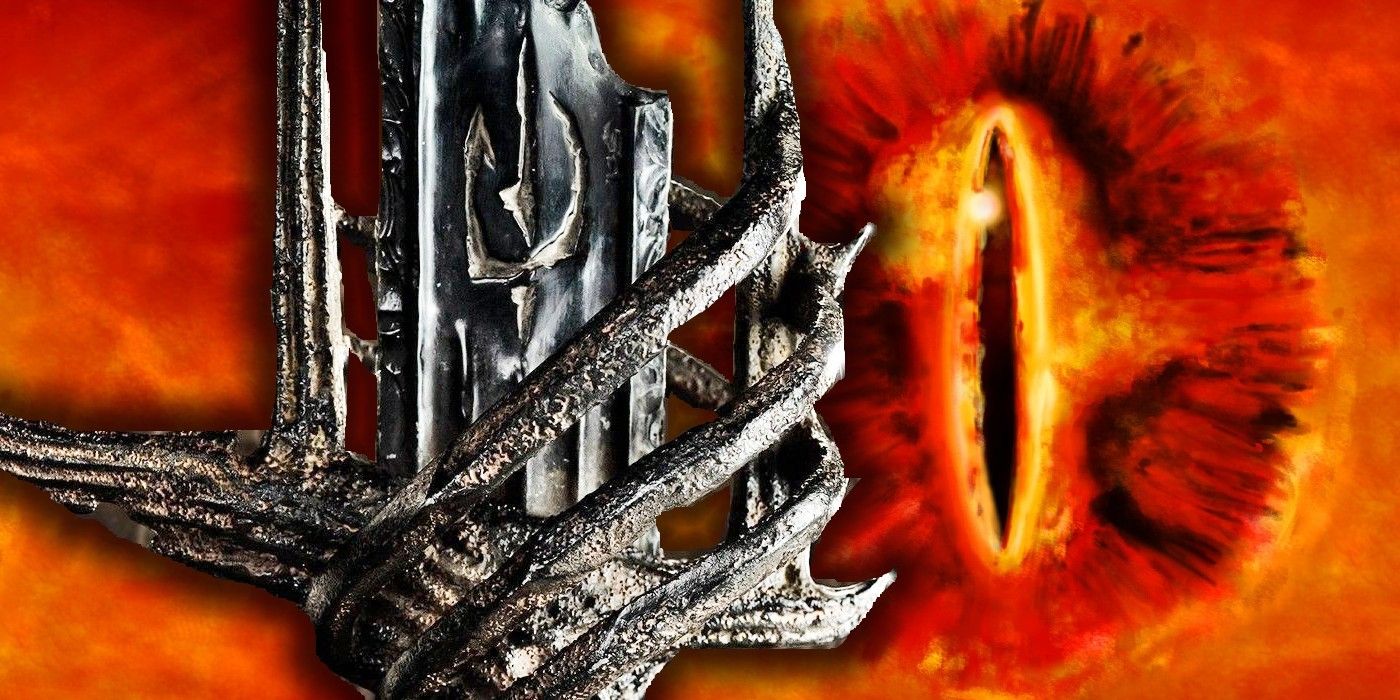
Yet there was a lesser-known weapon in Tolkien’s legendarium that simultaneously filled both roles, and it originated not from Middle-earth but from the stars far beyond the realm of Arda. The section “Of Túrin Turambar” from The Silmarillion tells the tale of Middle-earth’s most tragic family. And woven into their story was a black-bladed sword called Gurthang, the Iron of Death. Gurthang was a cursed, sentient sword made of meteoric iron. It aided two of The Silmarillion‘s heroes in their battles against the Dark Lord Morgoth’s forces but also spelled their respective dooms.
Gurthang Was One of The Lord of the Rings’ Deadliest Weapons
It Was Formerly Known as Anglachel, or “Iron of the Flaming Star”
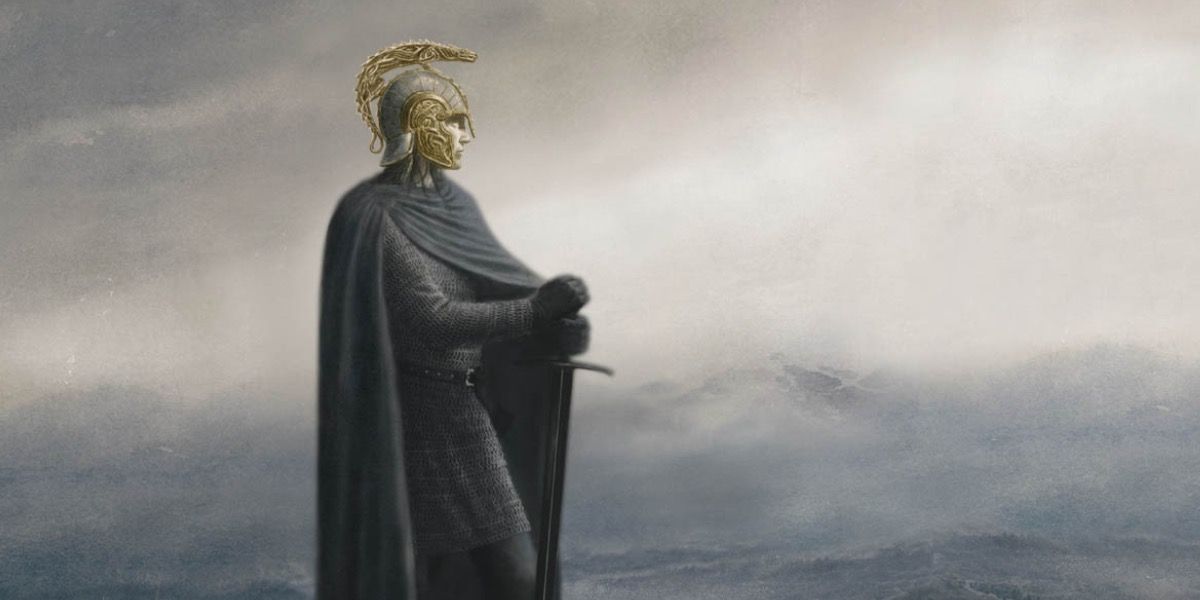
Much like Andúril, Gurthang was the reforged and renamed version of an older sword: Anglachel. Anglachel was a creation of Eöl the Dark Elf, a skilled but villainous blacksmith from early in Middle-earth’s history in the Lord of the Rings world. Eöl used the iron from a fallen meteorite he discovered to create a strong yet malleable black metal called Galvorn. He then forged Galvorn into the sword Anglachel, which was so sharp it could cut through ordinary iron with ease. Eöl poured his hatred into Anglachel, cursing the blade and giving it a degree of sentience. This was reminiscent of how Sauron would imbue the One Ring with his dark power several thousand years later in The Lord of the Rings.
Unlike Sauron, however, Eöl did not use his creation. Instead, he reluctantly gave Anglachel to King Elu Thingol as thanks for allowing him to stay in the forest of Nan Elmoth. Thingol’s wife Melian was one of the Maiar, the same type of divine spirit as Sauron and the Wizards from The Lord of the Rings. She could sense that Anglachel possessed an evil energy: “There is malice in this sword. The dark heart of the smith still dwells in it. It will not love the hand it serves; neither will it abide with you long.” Thingol heeded his wife’s warning, though he did not destroy the blade. He kept it in his armory, where Anglachel ostensibly awaited its inevitable destiny.
Anglachel Claimed Many Lives — Including its Wielders’
Tolkien Described Anglachel as “The Dread Blade”
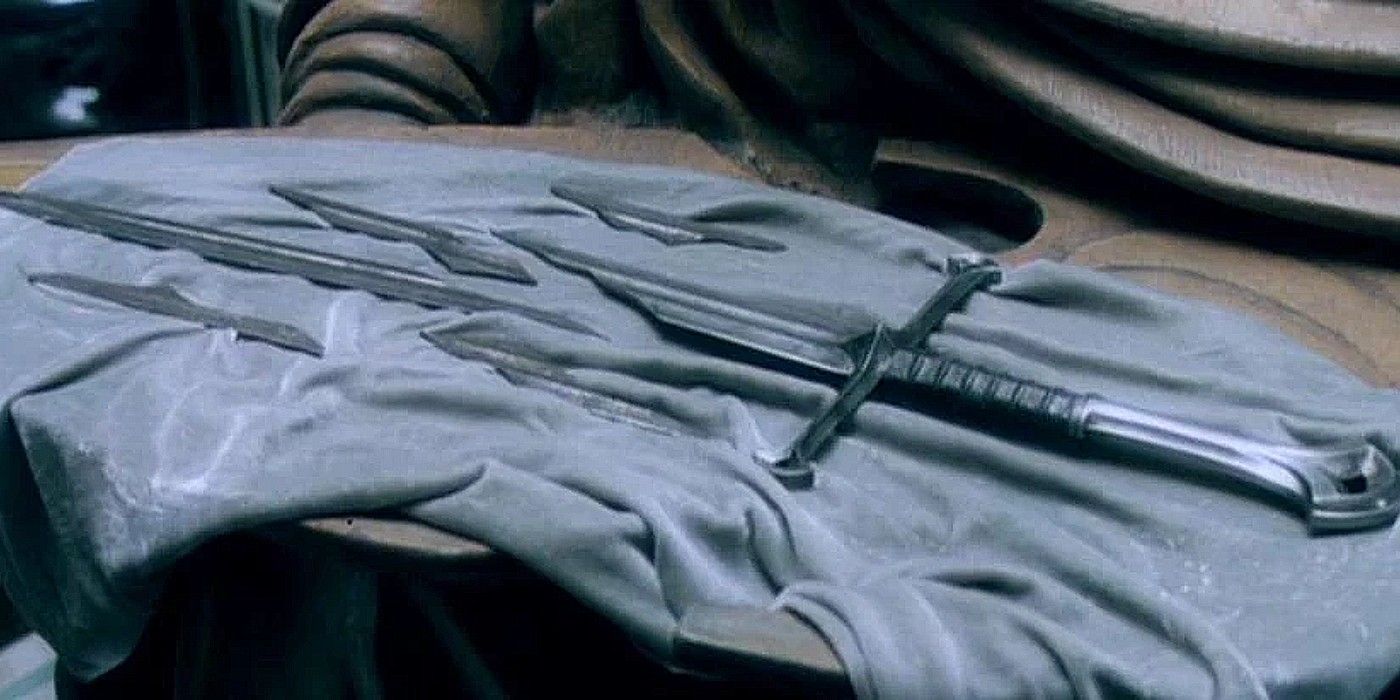
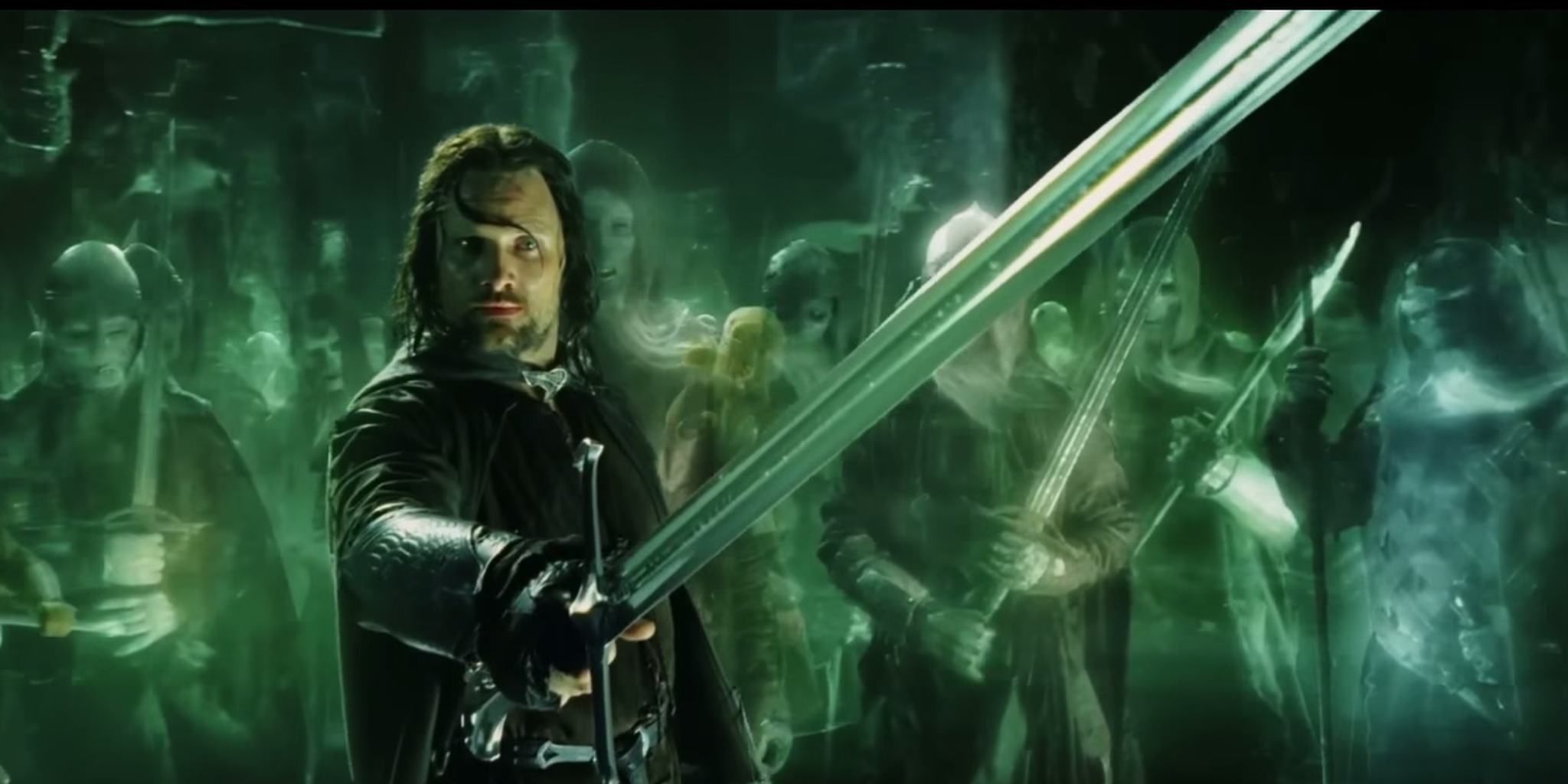
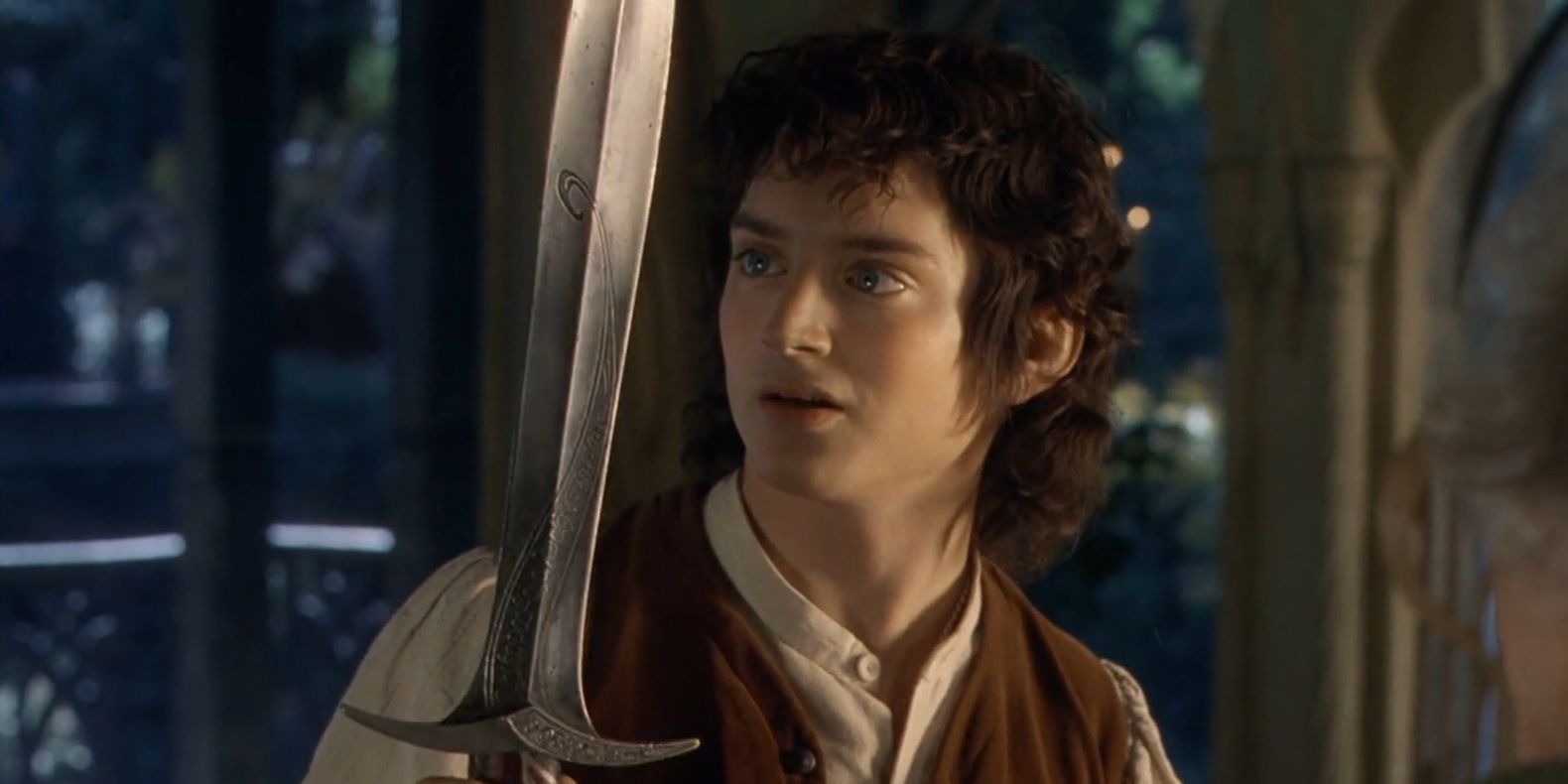
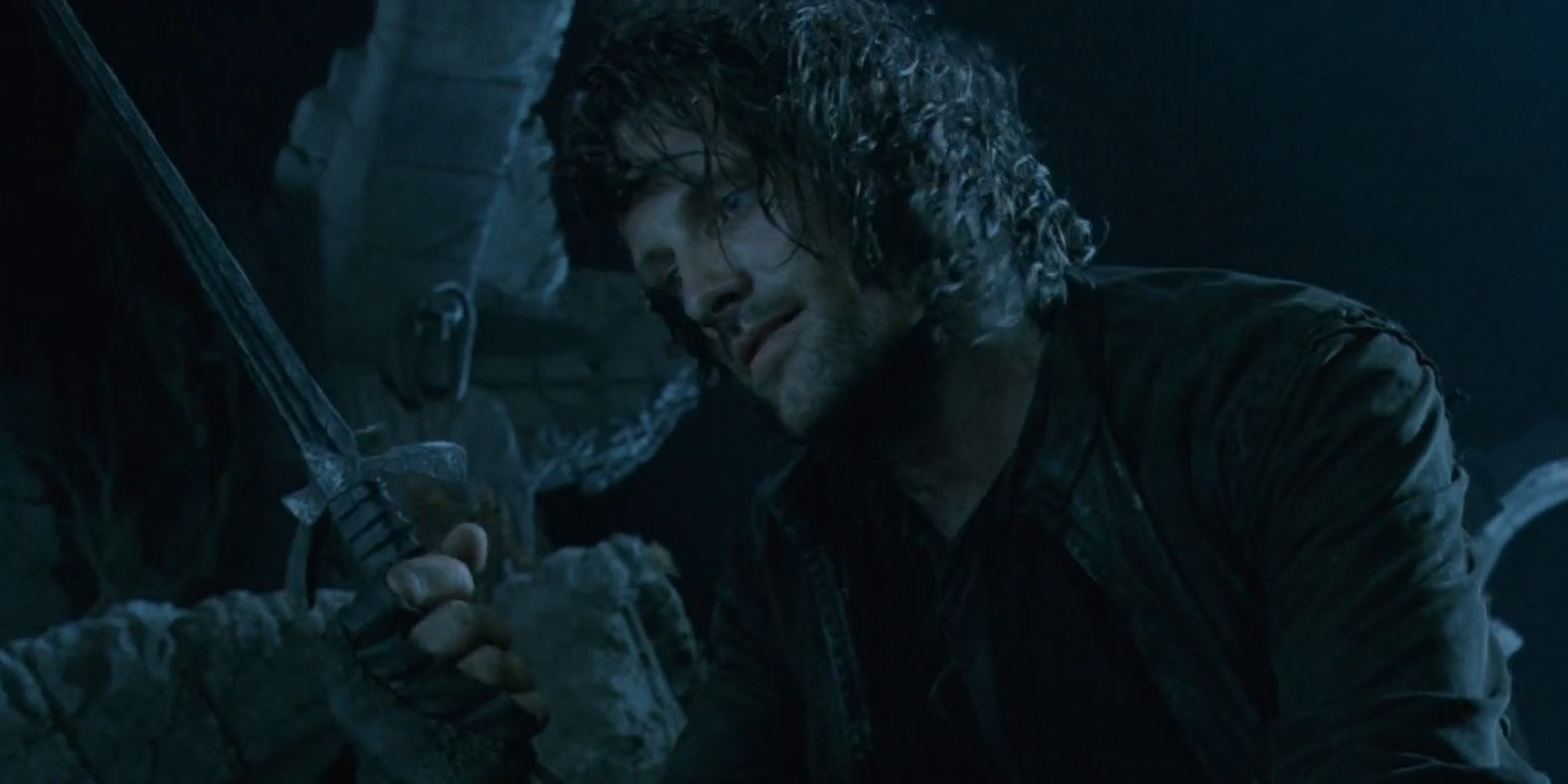




The day that Anglachel would finally taste blood came in the year 489 of the First Age. Beleg Strongbow, a march warden of Thingol’s kingdom, planned to join his friend Túrin Turambar in the north. Before he left, Thingol told him, “For many deeds you have earned my thanks… At this parting ask for any gift, and I will not deny it to you.” Beleg requested a weapon since his sword struggled against Orc’s armor. Thingol allowed Beleg to take anything he wished from the armory — aside from his personal sword, Aranrúth — and Beleg chose Anglachel. Melian warned him against it as she had her husband, but Beleg thought it was worth the risk. It was not long before Beleg had a chance to use Anglachel; soon after he arrived in the north, Orcs captured Túrin, and Beleg set out to rescue him.
Eöl also made a Galvorn sword for himself called Anguirel and a suit of Galvorn armor; these and Anglachel were the only known Galvorn items.
The word Galvorn means “shining black” in Sindarin Elvish.
Galvorn disappeared from blacksmithing memory after Eöl’s passing.
Tolkien wrote that the sword “rejoiced to be unsheathed.” Tolkien often ascribed emotions to inanimate objects, but in this instance, his choice of words demonstrated that Anglachel had a will of its own. In other words, the blade seemed to enjoy combat. Túrin was unconscious when Beleg eventually found him and cut him free from his restraints. Accidentally — or perhaps because of the sword’s bloodlust — Beleg nicked Túrin’s foot with the blade. The latter awoke in a frenzy, thinking that an Orc was attacking him. Túrin wrestled Anglachel out of Beleg’s hands and killed him with it, only realizing what he had done when a flash of lightning illuminated his fallen friend’s face. As Melian had predicted, Anglachel betrayed its wielder, another similarity to the One Ring from The Lord of the Rings.
Anglachel Held a Long Grudge Against Túrin Turambar
The Sword Lost Its Cutting Power After Spilling Beleg’s Blood
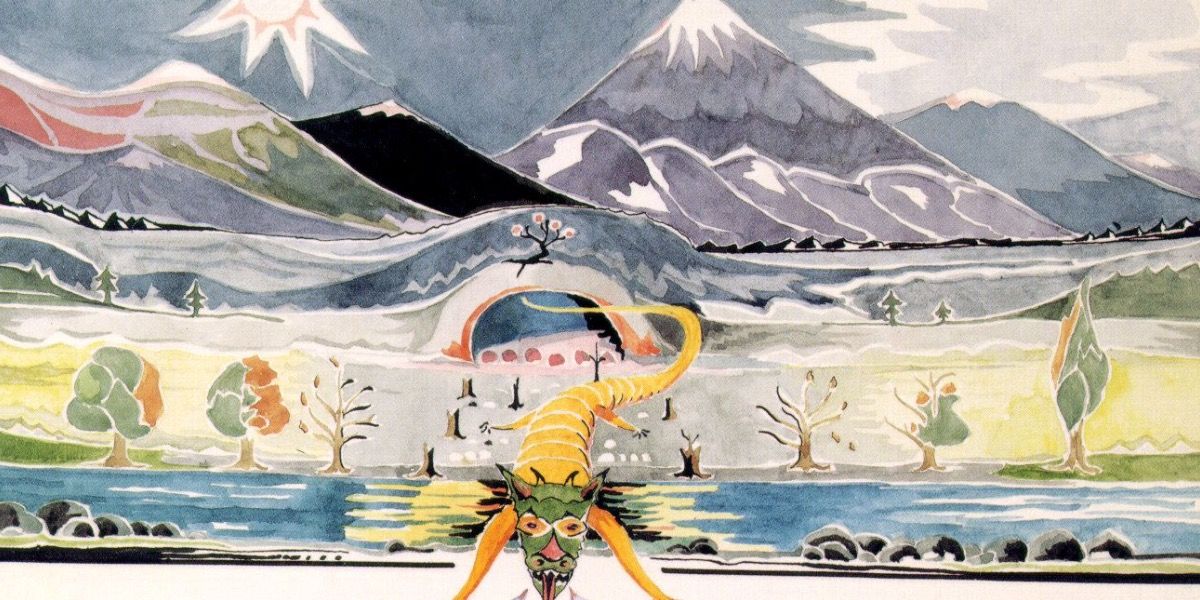
After coming to his senses, Túrin kept Anglachel, hoping to avenge Beleg by using it to kill more Orcs, yet ever since Beleg’s death, “its blade was… dull and its edges blunt.” The Elves of Nargothrond speculated that the reason for this sudden change was that Anglachel was mourning the death of its old wielder. They reforged it, renewing its luster and sharpness, and Túrin renamed it Gurthang. He used Gurthang to slay countless monsters, including Glaurung, the first dragon in Middle-earth.
In an early draft of what would eventually become The Silmarillion, Tolkien instead called the black sword Gurtholfin, meaning “Wand of Death.”
Archaeologists have discovered blades made of meteoric iron in the real world, including a dagger from King Tut’s tomb.
Yet even though the sword was effective again, it was no less cursed. After many tragedies befell Túrin, he lost his will to live. Raising his sword, he cried, “Hail Gurthang! No lord or loyalty dost thou know, save the hand that wieldeth thee. From no blood wilt thou shrink. Wilt thou therefore take Túrin Turambar, wilt thou slay me swiftly?” He heard the sword reply, “Yea, I will drink thy blood gladly, that so I may forget the blood of Beleg my master.”
Túrin then threw himself on the blade, shattering it. Túrin was under extreme duress, so his conversation with the sword may have been imagined, or it may have been another example of poetic license. However, Gurthang’s consistent personification — enjoying bloodshed, cutting Túrin, seeming to mourn Beleg, and then encouraging Túrin’s death — implied that the sword truly contained some of Eöl’s will. Gurthang’s sentience and malevolence made it even more intimidating than The Lord of the Rings swords, as the likes of the Morgul blades were only tools for their wielders.
The Role of Gurthang in the Dagor Dagorath
Gurthang Was Also Called the Black Thorn of Brethil
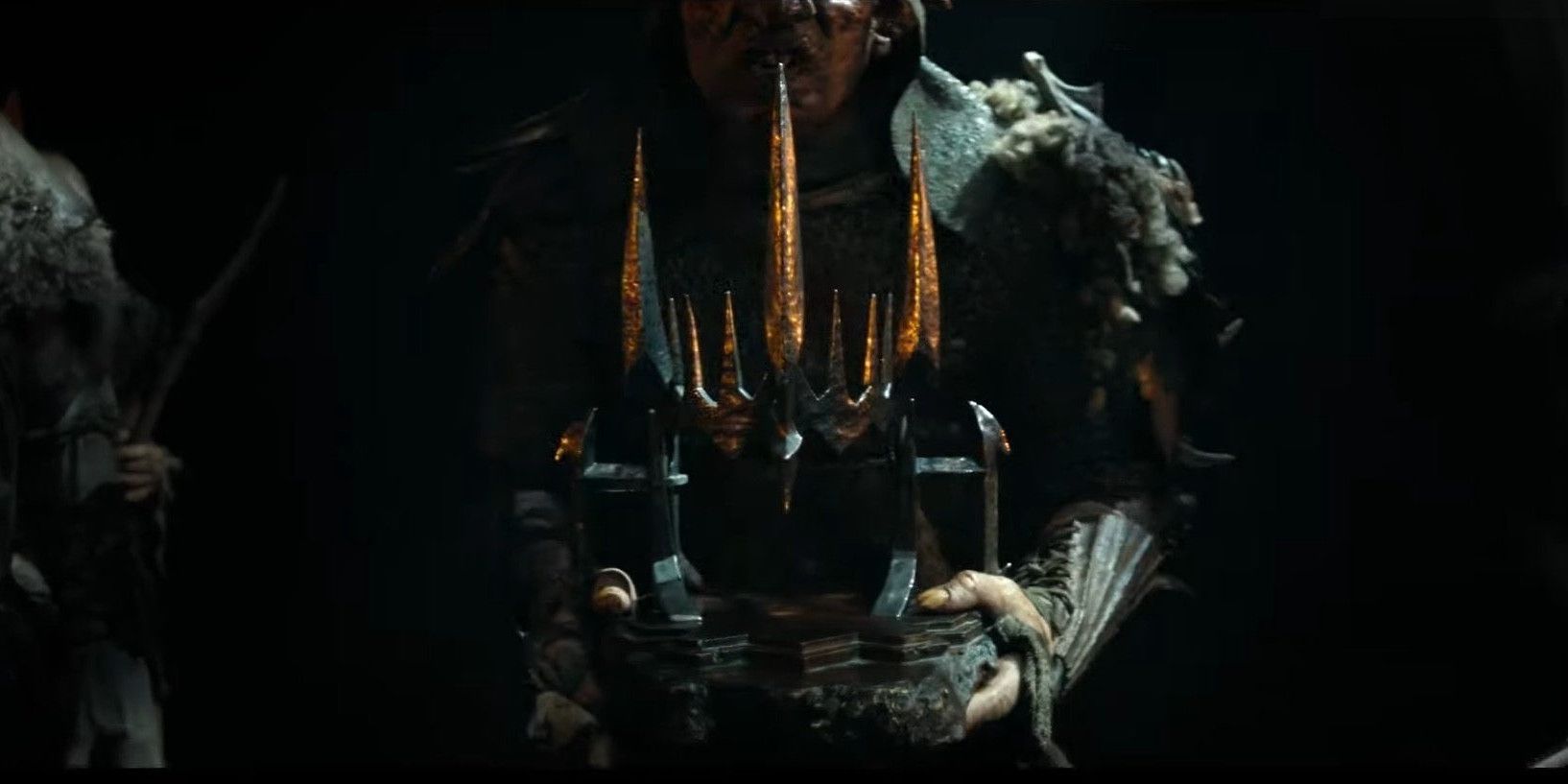
Following Túrin’s death, both his corpse and Gurthang were buried together on the banks of the Taeglin River and next to a holy stone known as the Stone of the Hapless. The Stone of the Hapless became the island of Tol Morwen after the drowning of Beleriand, where it remains untouched to this day. This fits into the prophecy of Túrin’s resurrection and return to Middle-earth during the End of Days or Dagor Dagorath.
Mandos of the Vala foretold that the Dark Lord Morgoth would escape the Timeless Void, enter Arda, and bring darkness to Middle-earth by destroying the Moon and the Sun. The Last Battle will commence forthwith, with Eärendil Half-Elven and Tulkas of the Vala fighting Morgoth in the air and on the ground, respectively. Morgoth’s defeat and ultimate destruction will be Túrin’s destiny, for “the black sword of Túrin shall deal unto Morgoth his death and final end.” Fans can only wonder if tasting the blood of the strongest entity in Middle-earth will finally satiate the bloodlust of Gurthang.

